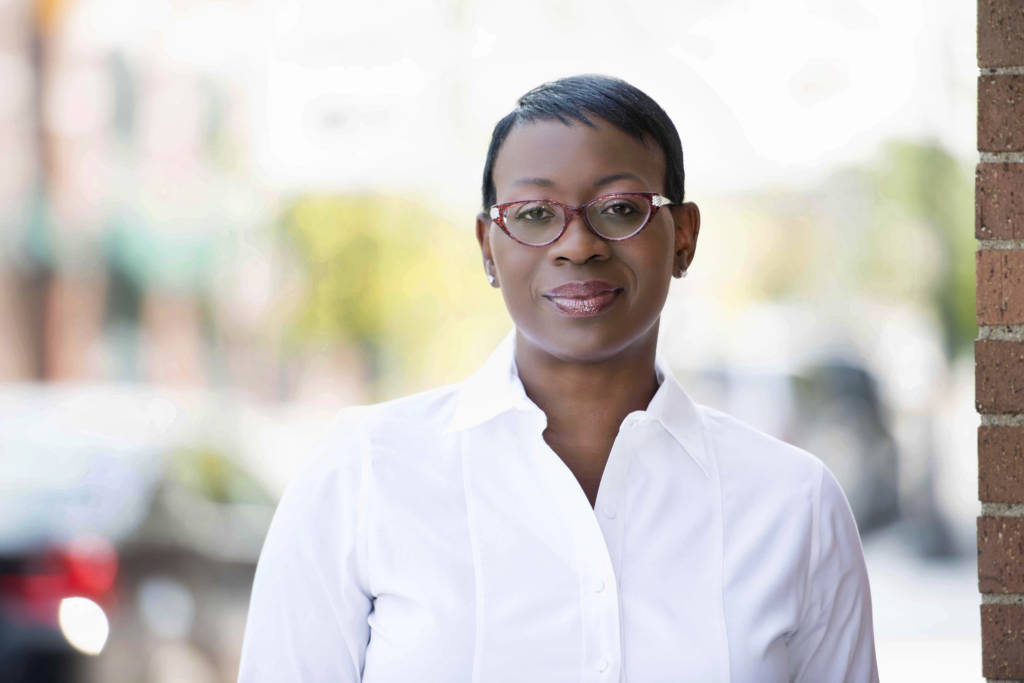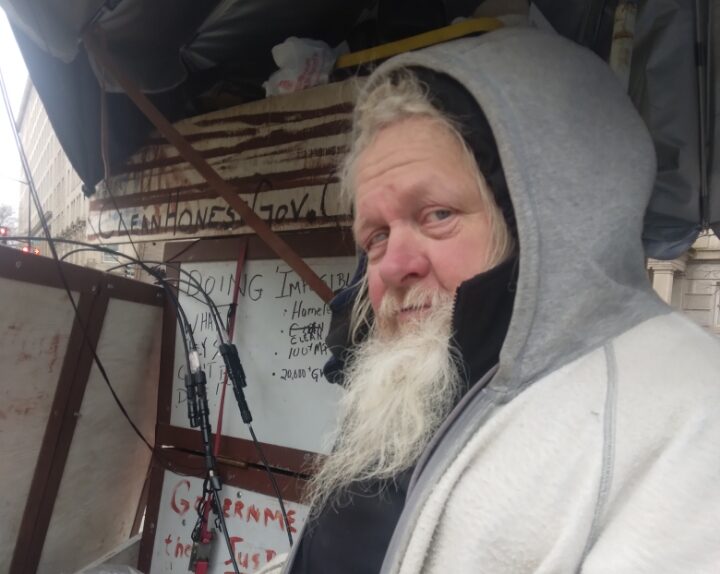In mid-September, former Ohio state senator Nina Turner was in Oakland, California, for a campaign rally. As she walked the streets and encountered the city’s massive homeless population, she teared up.
“On certain streets in that city, homeless people are there every single step,” Turner said. “It’s gut-wrenching that in the wealthiest country on the face of the earth, so many of our sisters and brothers have so little.”
As president of the progressive political action organization Our Revolution, Turner aims to lead a political revolution that in November will bring a new wave of left-leaning candidates into Congress, governorships, and other elected offices. The goal of the movement, according to Our Revolution’s website, is to transform the nation and advance a progressive agenda that includes Medicare for all, a $15 minimum wage, increased funding for affordable housing, and tuition-free public colleges and universities.
“We are about the business of supporting candidates who, once they get that power, have a vision and a commitment to passing policy that will ameliorate some of the suffering of the people of this country,” Turner said.
Turner said that too many politicians and business elites “preach a gospel of good news” about shrinking unemployment and many other subjects. “There is very little good news for the working poor and middle class in this country,” she said. “When we go deeper, as we should, there’s still far too many kids going to sleep at night with no food.”
According to No Kid Hungry, a national campaign to end child hunger, 13 million children in the United States live in homes that are food insecure, meaning they regularly do not have enough to eat.
The Our Revolution movement stemmed from Vermont Sen. Bernie Sanders’s 2016 presidential campaign and has pulled off some stunning primary wins this election cycle. In Massachusetts, Ayanna Pressley knocked out nine-term incumbent Mike Capuano, and in Florida, Andrew Gillum defeated former congresswoman Gwen Graham to become the Democratic nominee for Governor.
The Washington Post called Alexandria Ocasio-Cortez’s primary victory in New York’s 14th Congressional District, the “defining upset of 2018,” after Ocasio-Cortez defeated Joseph Crowley, the fourth-highest-ranking Democrat in the House.
Candidates endorsed by Our Revolution are making history. In Georgia, Stacey Abrams became the state’s first Black nominee for governor. Similarly, in Florida, Andrew Gillum won the Democratic primary to become that state’s first Black nominee for governor. And in Idaho, Paulette Jordan is running to become the nation’s first Native American governor.
“This is really an exciting time,” Turner said. “To see so many talented and committed people running for some of the highest offices in this land, to be able to be the change and push the policies that will make a difference for the people, it is stunning.”
Turner said the success of Our Revolution candidates is built on the work of countless people and multiple generations who upheld these ideals.
Even when candidates didn’t win, they were sometimes able to shift their opponents to a more progressive policy stance.
In New York, actress Cynthia Nixon was not able to replace incumbent Andrew Cuomo as Democratic nominee for governor, but during the campaign, according to an analysis by FiveThirtyEight, Cuomo changed his stance on marijuana legalization and announced other new progressive plans, including voting rights for parolees.
“Our candidates are softening the soil,” Turner said. “So I argue that Our Revolution is winning every time one of our candidates steps into the arena, whether they physically win that race or not.”
Turner said she visited 35 states over the past year and the number one issue she’s heard from voters is the need for Medicare for all.
“It’s not so much a radical idea anymore to think that we as a people in this country deserve Medicare for all,” Turner said. According to a Reuters poll conducted in June and July of 2018, 70 percent of Americans — 85 percent of Democrats and 52 percent of Republicans — support Medicare for all.
She also hears from many constituents who are concerned about income and wealth inequality. Though the unemployment rate is low, Turner said, many people in the country are suffering. Wage growth is stagnant, slower than it was during the economic recession of 2001.
Turner said that during her trip to Oakland, she met a man who said he and his wife make a combined salary of about $100,000 a year and it wasn’t enough.
“That just crushed my soul,” Turner said. “That same amount of money, $100,000, in somewhere like the Midwest, my home state of Ohio, you would really be able to live a good life. But in the Bay Area, $100,000 is poverty.” She said it’s not just happening in the Bay Area, People all over the country are being forced out of their communities because they aren’t making enough to survive. “There is something criminal and there is something immoral about that.”







